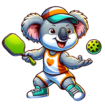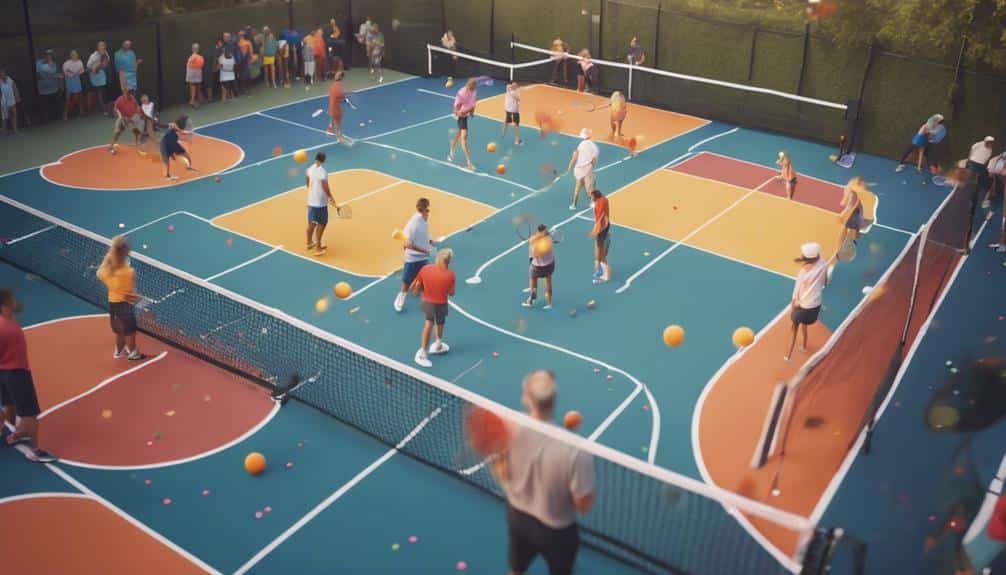I've encountered countless pickleball players struggling with advice overload, a common issue in our rapidly growing sport. With 45% of tips being plain wrong and 54% not applicable to your skill level, it's crucial to navigate this sea of information carefully. To combat this, I recommend verifying the source's credibility, cross-referencing information, and considering the context and applicability to your skill level. Finding a mentor can be invaluable in guiding you through the noise. Focus on trusted resources like BetterPickleball.com's newsletter, the Pickleball Therapy podcast, and reputable YouTube channels. By developing a deeper understanding of the game, you'll be better equipped to identify valuable advice.
Key Takeaways
- 45% of pickleball tips are incorrect, while 54% may not apply to your skill level.
- Information overload can lead to advice fatigue and decision paralysis in pickleball players.
- Verify advice sources, cross-reference information, and consider context before applying tips.
- Find a knowledgeable mentor to help navigate the overwhelming amount of pickleball advice.
- Focus on consistent practice, strategic analysis, and targeted skill development for continuous improvement.
The Advice Avalanche
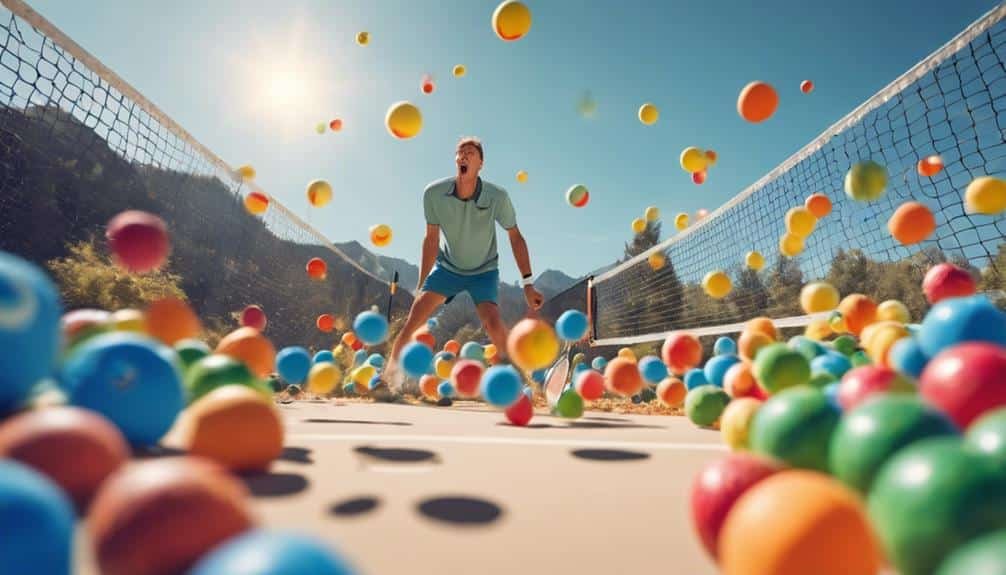
In the world of pickleball, players are often inundated with a constant stream of well-meaning but potentially misguided advice.
I've noticed that this 'advice avalanche' can lead to what I call 'advice fatigue' and 'information paralysis'. It's overwhelming when 45% of the tips you receive are plain wrong, and another 54% might be correct in general but not applicable to your current skill level.
As a player myself, I understand the desire to improve and belong in our pickleball community.
However, it's crucial to navigate this sea of information carefully. Only 1% of advice is both correct and suitable for you.
To avoid getting bogged down, I recommend finding a mentor who can help you sift through the noise. They'll guide you towards the advice that's truly beneficial for your game.
Separating Wheat From Chaff
To effectively separate the wheat from the chaff in pickleball advice, you'll need to develop a critical eye and rely on trusted sources. Information filtering is crucial in this era of advice overload.
I've found that filtering noise requires a combination of knowledge and discernment.
Verify the source's credibility and expertise.
Cross-reference information with multiple trusted resources.
Consider the context and applicability to your skill level.
Seek advice from experienced mentors or coaches.
Test advice in practice before fully adopting it.
Finding Your Pickleball Mentor
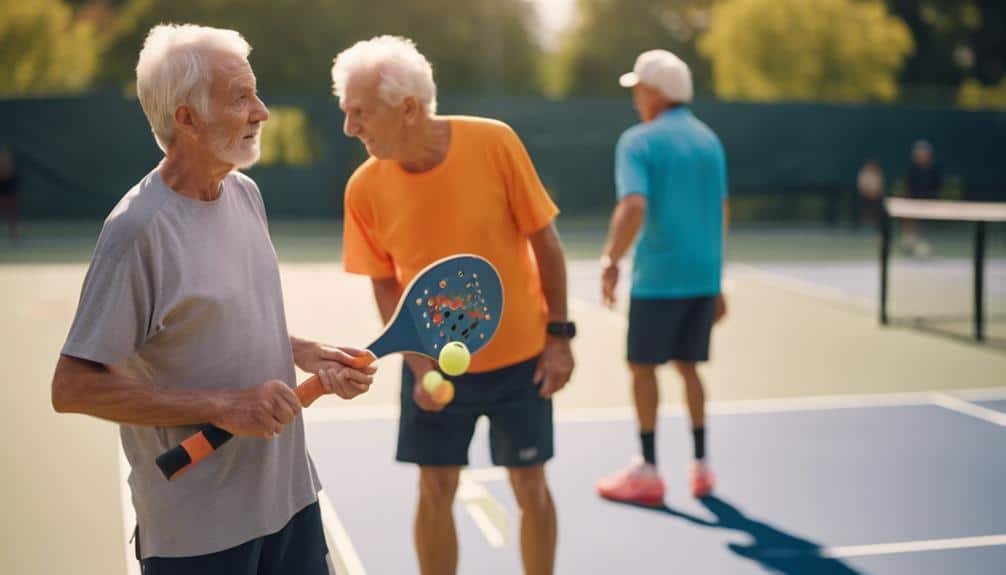
Finding a pickleball mentor can significantly accelerate your learning curve and help you navigate the sea of advice more effectively.
When searching for a mentor, I recommend looking for someone who possesses a deep understanding of the game and has experience guiding players at your level. Key mentor qualities include patience, clear communication, and the ability to provide constructive feedback.
It's crucial to find a personal fit – someone whose teaching style resonates with your learning preferences.
Your mentor should be able to identify your strengths and weaknesses, tailoring advice to your specific needs. They'll help you sift through the overwhelming amount of information available, focusing on what's most relevant for your improvement.
Remember, a good mentor doesn't just teach techniques; they inspire you to push your boundaries and stay committed to your pickleball journey.
With the right mentor, you'll feel supported and motivated to excel in our beloved sport.
Trusted Information Sources
Trusted information sources for pickleball can help you cut through the noise and access reliable advice.
Certain podcasts and YouTube channels consistently provide accurate and valuable information. The Pickleball Therapy podcast is a go-to resource for many players in our community. For visual learners, I highly recommend the In2Pickle and Better Pickleball YouTube channels.
BetterPickleball.com's weekly newsletter
Pickleball Therapy podcast
In2Pickle YouTube channel
Better Pickleball YouTube channel
Coach Pete Scales' course
Developing Game Understanding
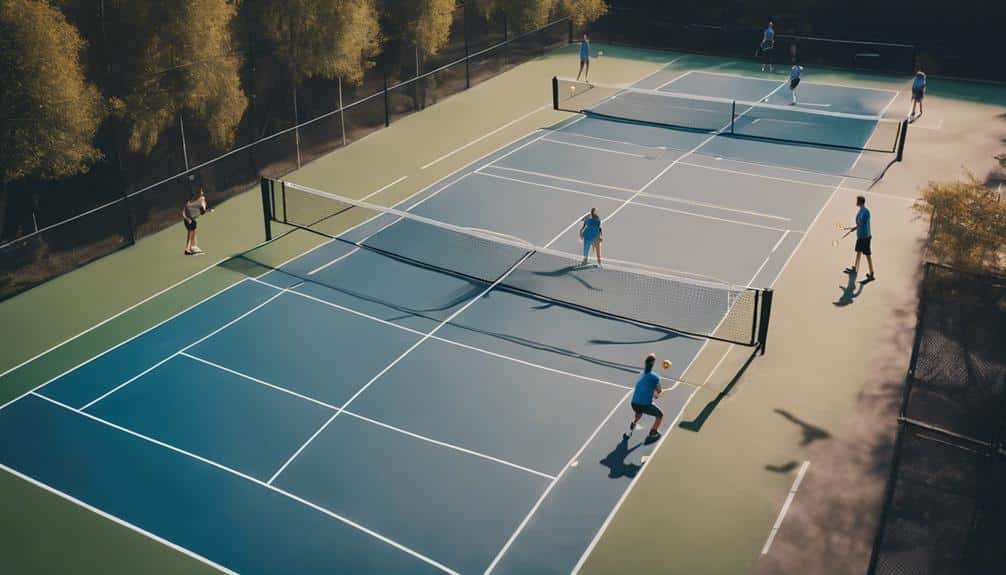
Developing a deep understanding of pickleball requires three key components: consistent practice, strategic analysis, and targeted skill development.
To master Game Fundamentals, I focus on perfecting my serve, dinks, and volleys through repetitive drills. I also study match footage to identify patterns and improve my court positioning.
For Strategy Development, I analyze various playing styles and adapt my approach accordingly. I work on anticipating opponents' moves and crafting effective counterplays.
To enhance my skills, I break down complex techniques into manageable parts, practicing each element separately before integrating them. By combining these approaches, I'm constantly evolving my game.
Tailoring Advice to You
While developing game understanding is vital, personalizing advice to your specific needs and skill level is equally important for optimal improvement in pickleball. I've found that tailored guidance can significantly accelerate your progress.
Personalized coaching helps you focus on areas that need the most attention, rather than wasting time on skills you've already mastered.
To tailor advice to your game:
- Assess your current skill level honestly
- Identify your specific weaknesses and strengths
- Set clear, achievable goals for improvement
- Seek feedback from experienced players or coaches
- Regularly evaluate your progress and adjust your focus
Navigating Online Pickleball Resources

Countless online pickleball resources exist, but not all are created equal in terms of accuracy, relevance, and applicability to your specific needs.
As I navigate the vast sea of information, I've found that conducting thorough online research is crucial. I recommend starting with trusted sources like BetterPickleball.com's newsletter and the Pickleball Therapy podcast. These platforms offer curated, up-to-date content that's more likely to benefit your game.
Engaging with the pickleball community through forums and social media can also provide valuable insights. However, I always cross-reference advice with reputable sources.
YouTube channels like In2Pickle and Better Pickleball offer visual demonstrations that complement written resources. Remember, what works for one player may not work for you. I've learned to critically evaluate advice, considering my skill level and playing style.
Avoiding Information Overload
Pickleball's wealth of information can quickly become overwhelming, necessitating a strategic approach to manage the influx of advice and resources. To avoid digital distraction and information overload, I've developed a system for filtering noise and focusing on what truly matters for my game improvement.
I've identified five key strategies for managing pickleball advice:
- Identify trusted sources and limit consumption to these channels
- Set specific learning goals and seek information aligned with them
- Implement a 'one in, one out' rule for new tips or techniques
- Schedule dedicated time for learning, separate from playing
- Regularly assess the impact of new information on your game
Implementing Effective Strategies
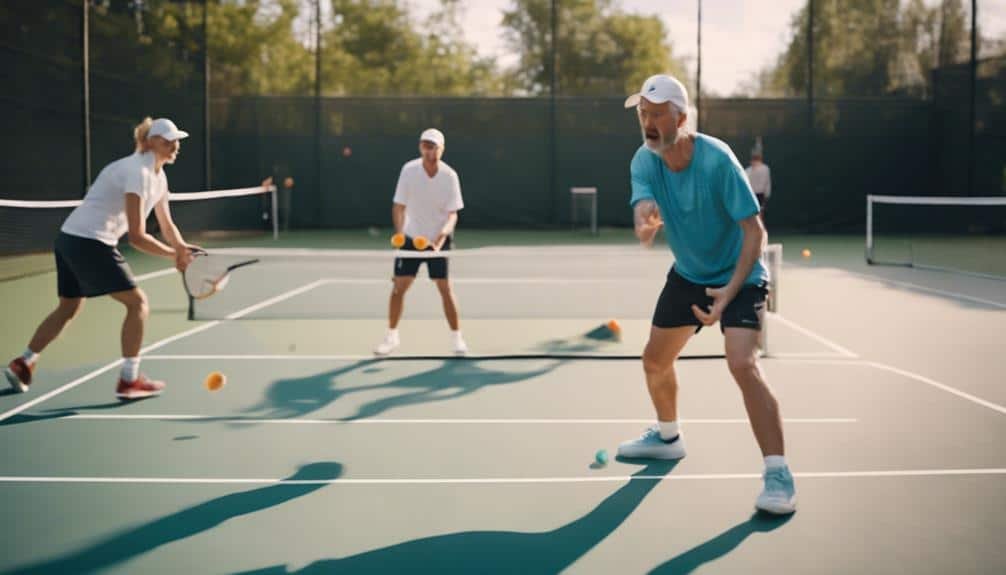
Effective implementation of pickleball strategies requires a systematic approach to learning, practice, and on-court execution.
I've found that mastering Pickleball Fundamentals is crucial before attempting advanced techniques. To avoid information overload, I recommend focusing on one skill at a time, practicing it consistently until it becomes second nature.
When selecting a course or training program, look for a well-structured Course Structure that builds upon previous lessons.
This approach allows you to develop a solid foundation and progressively improve your game.
I've discovered that joining a community of like-minded players can provide valuable support and motivation throughout your learning journey.
Continuous Improvement in Pickleball
To maintain a competitive edge in pickleball, I've found that embracing a mindset of continuous improvement is essential, requiring regular self-assessment and targeted skill development.
I've discovered that attending events like the Pickleball Summit and participating in Game Studies are invaluable for staying current with the latest techniques and strategies.
These opportunities allow me to analyze my strengths and weaknesses objectively.
They also enable me to learn from top players and coaches.
I can experiment with new shot variations.
I can refine my mental game.
I can network with like-minded pickleball enthusiasts.
Conclusion
In this sea of pickleball advice, I've learned to navigate with precision, like a skilled captain steering through treacherous waters.
I've honed my ability to filter out the noise, focusing on that golden 1% of truly valuable insights.
By cultivating a deep understanding of the game, finding a trusted mentor, and leveraging reliable resources, I've charted a course for continuous improvement.
Remember, in the world of pickleball wisdom, quality trumps quantity every time.
